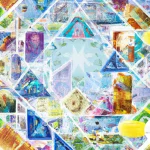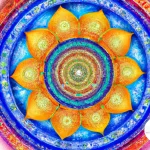Numerology, a mystical practice rooted in the belief that numbers hold profound significance, has been a part of ancient cultures worldwide. In the realm of ancient Egyptian civilization, numerology played a pivotal role in shaping their beliefs, society, and daily life. The Egyptians attributed immense importance to numbers, associating them with various cosmic forces and using them to interpret the mysteries of the universe. Symbolism of numerical patterns, such as the sacred numbers 3 and 7, were deeply ingrained in their culture and permeated everything from architecture and art to religious practices. This article explores the multifaceted role of numerology in ancient Egypt, delves into the different numerological systems they employed, and examines the lasting legacy of this ancient practice in modern Egyptology. Join us on a fascinating journey uncovering the profound influence of numerology in ancient Egyptian culture.
Numerology in Ancient Egyptian Beliefs
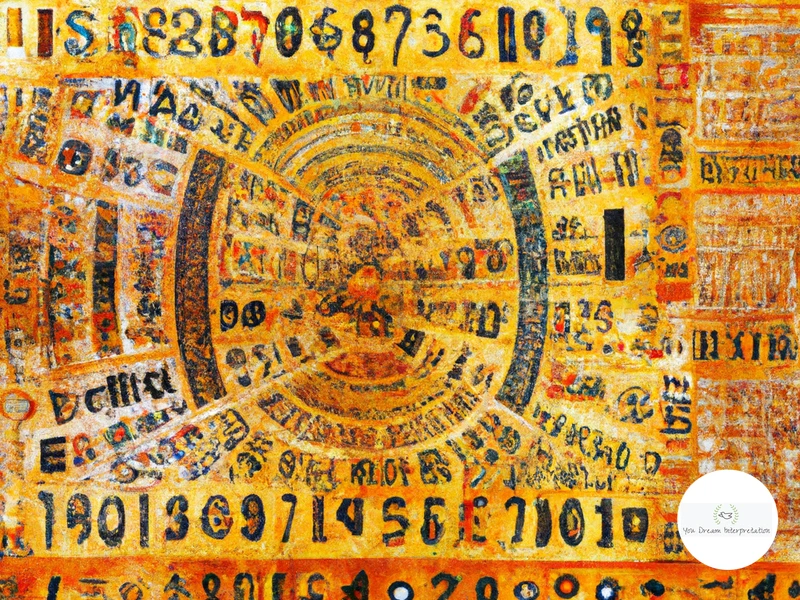
The ancient Egyptians held a deep belief in the power and significance of numbers, a practice known as numerology. Numbers were seen as more than just mathematical entities; they were seen as a reflection of cosmic forces and divine energies. The importance of numbers in ancient Egyptian beliefs cannot be overstated. Each number was associated with specific qualities, such as strength, balance, or creativity, and had a direct influence on various aspects of life. For example, the number three symbolized divine perfection, linking it to the gods Isis, Osiris, and Horus. Similarly, the number seven was considered highly sacred, representing the seven components of the soul. Numerological patterns and symbolism were embedded in every aspect of ancient Egyptian culture, including religious rituals, architectural designs, and artistic creations. It was through the exploration of these numerical patterns that the ancient Egyptians sought to unravel the mysteries of the universe and obtain spiritual enlightenment. To this day, the influence of numerology in ancient Egyptian beliefs continues to captivate and inspire researchers and enthusiasts alike. For those interested in delving deeper into the world of numerology, understanding its ancient roots can provide valuable insights into various aspects of life, such as career choices, compatibility in relationships, and finding a soulmate.
1. Importance of Numbers
In ancient Egyptian culture, numbers held profound significance and were believed to possess divine qualities and influence various aspects of life. The importance of numbers in Egyptian beliefs was deeply ingrained in their society. Here are some key aspects of their numerical significance:
1. Unity and Creation: The number one represented unity, depicting the concept of oneness and the divine creative force. It symbolized the sun god Ra who was considered the creator of all things.
2. Dualities and Balance: The number two represented duality and balance, embodying the concept of opposites harmoniously coexisting. It reflected the inseparable connection between Upper and Lower Egypt, represented by the goddess Nekhbet and the goddess Wadjet.
3. Divine Perfection: The number three was highly revered and was associated with divine perfection. It symbolized harmony, completeness, and the triple nature of gods like Isis, Osiris, and Horus.
4. Cosmic Order: The number four represented cosmic order and stability. It symbolized the four cardinal directions (north, south, east, west) and the four elements (earth, air, fire, water). The number four was significant in architectural designs, with temples often having four entrances.
5. Sacred Numbers: The numbers seven and twelve held special significance. Seven represented the seven components of the soul and the seven celestial bodies visible to the naked eye. Twelve represented the twelve hours of the day and night, as well as the twelve divisions of their zodiac.
The ancient Egyptians believed that understanding the meanings and symbolism behind these numbers allowed them to align with divine energies and achieve a higher spiritual state. Today, numerology continues to intrigue and provide valuable insights into various aspects of life, including career choices, compatibility in relationships, and finding a soulmate. By exploring the importance of numbers in ancient Egyptian culture, we gain a deeper understanding of the profound influence numerology had on their beliefs and society.
2. Symbolism of Numerical Patterns
The numerical patterns in ancient Egyptian culture held deep symbolism and were regarded as a means to tap into cosmic energies and divine knowledge. Ancient Egyptians assigned specific meanings to various numerical patterns, which guided their understanding of the universe and their place within it. For instance, the number four held great significance, representing the four cardinal directions – north, south, east, and west – as well as the four elements: earth, air, fire, and water. These patterns emphasized the symbolic importance of balance and completeness. The number twelve was another significant numerical pattern, symbolizing the twelve months of the year and the twelve hours of day and night. This reinforced a cyclical understanding of time and the perpetuity of existence. The sacred numbers three and seven were also deeply engrained within ancient Egyptian culture. The number three represented the divine trinity, consisting of Isis, Osiris, and Horus, symbolizing creation, death, and rebirth. The number seven was believed to encompass the seven parts of the soul, each connected to a specific deity and aspect of existence. By studying and interpreting these numerical patterns, the ancient Egyptians believed they could gain greater insight into their own lives, the natural world, and the spiritual realms. The symbolism of numerical patterns remains a fascinating aspect of ancient Egyptian culture, offering glimpses into their complex belief systems and their profound connection with the cosmic forces that governed their existence.
Role of Numerology in Ancient Egyptian Society
The role of numerology in ancient Egyptian society was multifaceted and pervasive. Interpretation of numbers in daily life was a common practice, as numbers were believed to hold insights into one’s personality, destiny, and even the outcome of specific events. For instance, individuals would consult numerologists to determine auspicious dates for important life events, such as marriages or business ventures. Numerology also played a significant role in architecture and art, as demonstrated by the precise alignments and ratios found in monumental structures like the Great Pyramid of Giza. Numerological patterns were carefully integrated into the designs to align with cosmic forces and divine harmony. Additionally, numerology was intertwined with religious practices, with specific numbers representing gods and goddesses or serving as symbols of cosmic cycles. The ancient Egyptians believed that understanding and harnessing these numerical connections allowed them to establish a stronger connection with the divine. Numerology permeated all aspects of ancient Egyptian society, serving as a guiding force in decision-making, creative expression, and spiritual pursuits.
1. Interpretation of Numbers in Daily Life
In ancient Egyptian society, the interpretation of numbers in daily life held immense significance. The Egyptians believed that numbers possessed inherent qualities and vibrations that influenced various aspects of their daily existence. Let’s explore some of the ways in which numbers were interpreted and applied:
1. Personal Names and Birth Dates: The ancient Egyptians deeply believed that names and birth dates held immense power and impact on an individual’s life. They believed that the vibrations and energies associated with specific numbers influenced a person’s character, destiny, and potential. For example, if someone’s name or birth date added up to a specific number, it was believed to reveal their strengths, weaknesses, and life purpose.
2. Astrology and Numerology: The Egyptians looked to the alignment of celestial bodies and their corresponding numerical values to gain insight into events and personal characteristics. They believed that the positioning of planets and stars at the time of birth correlated with specific numbers, which in turn influenced a person’s traits and future. By studying these celestial patterns and their associated numbers, the ancient Egyptians sought to unlock the mysteries of the universe and gain insight into their own lives.
3. Magical Spells and Incantations: Numerology played a significant role in ancient Egyptian magic and spellcasting. Each number was believed to possess its own unique power and energy. By incorporating specific numbers into chants, rituals, and incantations, they sought to harness the vibrational qualities of these numbers to manifest desired outcomes. For example, the number seven was considered a sacred number associated with spiritual protection and purification.
4. Divination: Numerology was used as a tool for divination, allowing the ancient Egyptians to gain insights into the future and make informed decisions. Using various numerological techniques, such as adding up numbers or interpreting numerical patterns, diviners would offer guidance on matters ranging from personal relationships to important life choices.
The interpretation of numbers in daily life was an integral part of ancient Egyptian culture, influencing everything from personal names and birth dates to astrology, magic, and divination. By understanding the significance of numbers and their vibrations, the ancient Egyptians believed they could gain insight into the mysteries of life and navigate their path with wisdom and purpose.
2. Numerology in Architecture and Art
Numerology played a significant role in shaping the architectural and artistic endeavors of ancient Egyptians. They believed that numbers held a sacred and powerful influence, capable of enhancing the spiritual and cosmic energy of their creations. In architecture, numerical symbolism guided the design and layout of temples, tombs, and monuments. For example, the use of the number four in the construction of temple columns symbolized stability. The famous Karnak Temple complex in Luxor is an excellent example of numerological significance in architecture. The Great Hypostyle Hall, supported by 134 massive columns arranged in a grid pattern, not only showcased the technical prowess of ancient Egyptian architecture but also symbolized the harmonious order of the cosmos.
In art, numerological patterns and symbolism are evident in the depictions of gods, goddesses, and mythical creatures. The number of figures, colors, and symbols used in a piece of artwork had specific meanings and conveyed unique messages. Paintings and reliefs found in tombs and temples often depicted gods and pharaohs with a precise number of fingers or toes, emphasizing the spiritual power associated with specific numbers. For example, the god Thoth, often depicted with an ibis head, was associated with the number four, representing the four cardinal directions and the four elements.
The application of numerology in ancient Egyptian architecture and art not only showcased their artistic finesse but also served a deeper purpose of aligning their creations with cosmic energies and divine principles. These numerical elements imbued their architecture and art with a sense of harmony, balance, and spiritual significance. Exploring the intricacies of numerology in ancient Egyptian architecture and art offers a fascinating glimpse into their profound understanding of the relationship between numbers, symbolism, and the spiritual realm.
3. Numerology in Religious Practices
In ancient Egypt, numerology played a prominent role in religious practices, where numbers were seen as a means of connecting with the divine. Numerology in religious practices involved the interpretation of numbers to gain insights into the spiritual realm. One of the key aspects of this practice was the belief that certain numbers held sacred qualities and corresponded to specific deities. For example, the number 42 was associated with the goddess Maat, who represented truth and justice. The ancient Egyptians believed that by incorporating the power of these numbers into their religious rituals and offerings, they could receive blessings and guidance from the gods. Additionally, numerology was used to determine auspicious dates and times for important religious ceremonies and events. Priests and priestesses would consult numerological calculations to ensure that the timing aligned with the cosmic energies and maximized the potential for divine favor. The precise use of numbers in religious practices extended to the construction and design of temples and sacred spaces. The dimensions, proportions, and placement of elements in these structures were meticulously calculated based on numerological principles to create a harmonious and sacred environment. The use of numerology in religious practices exemplifies how deeply intertwined numbers were with the spiritual beliefs and practices of the ancient Egyptians. The connection between numbers and divinity was considered a pathway to unlock higher knowledge and communicate with the gods. To this day, the influence of numerology in ancient Egyptian religious practices continues to fascinate scholars and spiritual seekers alike, serving as a testament to the enduring legacy of this mystical art.
Ancient Egyptian Numerological Systems
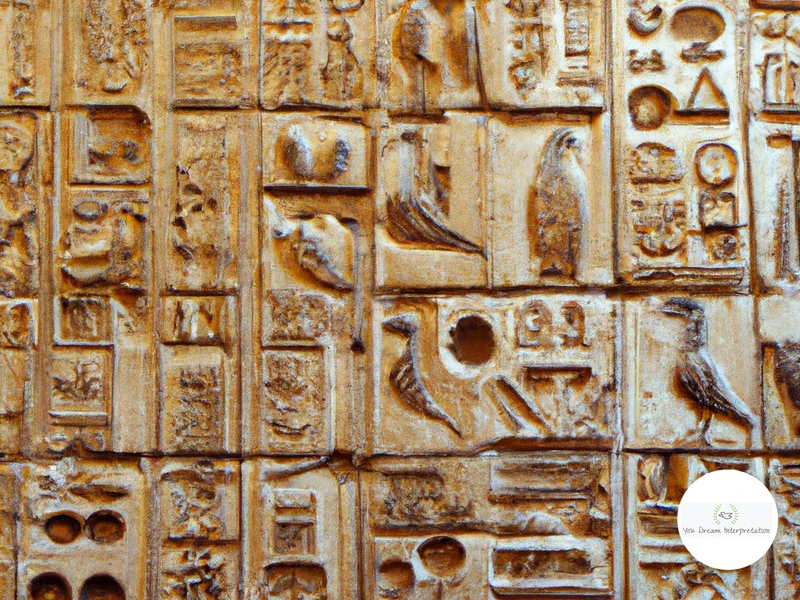
Numerology in ancient Egyptian society was not limited to a single system; instead, various numerological systems were employed. These systems provided different ways of interpreting numbers and their meanings. The Heliopolitan System, also known as the Ennead System, focused on the nine major deities of Heliopolis and their corresponding numbers. Each deity was assigned a specific number, such as Ra with the number one and Thoth with the number eight. The Memphite System, named after the city of Memphis, associated different gods with specific numbers, creating a complex network of numerical symbolism. The Theban System, as the name suggests, originated in Thebes and attributed particular numbers to gods, providing insights into their characteristics and roles. Lastly, the Hermopolitan System was centered around the city of Hermopolis and emphasized the interplay between the primordial forces of chaos and order. This system assigned numbers to gods representing these opposing forces. These various numerological systems added depth and complexity to the interpretation of numbers in ancient Egyptian culture, allowing for a comprehensive understanding of the spiritual and cosmic aspects of their beliefs.
1. The Heliopolitan System
In ancient Egyptian numerology, the Heliopolitan System was one of the key numerical systems that held significant importance. The Heliopolitan System originated from Heliopolis, the center of the worship of the Sun god Ra. This system assigned specific meanings to individual numbers and their combinations. It relied heavily on the concept of the “Ennead,” which was a group of nine deities revered in Heliopolis. The Ennead represented the nine original gods and goddesses who governed creation. Each god or goddess was associated with a specific number and had unique attributes and powers. For example, Ra, the Sun god, was represented by the number one and was considered the supreme deity. The Heliopolitan System also recognized the number nine as a sacred number, symbolizing the completion of a cycle and the unity of all the gods in the Ennead. This system provided a framework for interpreting the significance of numbers and their connection to divine energies in ancient Egyptian society. Understanding the Heliopolitan System allows us to gain insights into the complex and intricate belief system of the ancient Egyptians and how numerology played a role in their spiritual practices.
2. The Memphite System
The Memphite System is one of the prominent numerological systems used in ancient Egypt. It was developed in Memphis, the capital city of the Old Kingdom. This numerical system attributed significance to the numbers 2, 4, 8, 16, and 32, which were believed to have a direct connection with the creation and order of the universe. The Memphite Theology, a well-known religious text, provides insight into the Memphite System’s symbolism and interpretation of numbers. According to this system, the number 2 represented duality and the divine pairing of Ptah, the god of craftsmen, and his consort, the lioness-headed goddess Sekhmet. The number 4 symbolized stability and the four cardinal points of the compass. It was associated with the creation of the primeval mound by the god Ptah and the concepts of totality and completeness. As the numbers continued to increase, their significance multiplied. For example, the number 8 represented not only balance and stability but also the eight deities who guarded the primeval mound. Similarly, the numbers 16 and 32 were associated with higher realms of power and cosmic order. The Memphite System, with its focus on the precise arrangement and combination of numbers, exemplified the ancient Egyptians’ meticulousness in harmonizing divine forces and seeking cosmic balance. As a result, this numerical system left a profound impact on the development of ancient Egyptian religious beliefs and rituals. Its influence can still be explored and appreciated today, shedding light on the complex interplay between numbers and spirituality in the ancient world.
3. The Theban System
The Theban System is one of the four major numerological systems used in ancient Egypt, alongside the Heliopolitan, Memphite, and Hermopolitan Systems. This system is named after the city of Thebes, which was a significant religious and cultural center in ancient Egypt. In the Theban System, each number represents a specific deity or concept. Here is a list of some of the key associations within the Theban System:
1. Amun-Ra: The number one is associated with the powerful deity Amun-Ra, who was considered the king of the gods and represented the creative force of the universe.
2. Ptah: The number two is connected to Ptah, the god of creation and craftsmen. Ptah was believed to have the power to shape and mold existence.
3. Thoth: Thoth, the god of wisdom and writing, is associated with the number three in the Theban System. Thoth was considered the scribe of the gods and a mediator between different realms.
4. Ma’at: Ma’at, the personification of truth, justice, and harmony, is linked to the number four. Ma’at was responsible for maintaining cosmic balance and order.
5. Horus: The number five represents Horus, the falcon-headed god of the sky and protector of the pharaoh. Horus was also associated with divine kingship.
6. Sekhmet: Six is connected to Sekhmet, the lioness goddess of war and healing. Sekhmet harnessed the power of the sun and was both a fierce protector and a bringer of plague.
7. Isis: The number seven corresponds to the goddess Isis, who represented feminine divinity, magic, and fertility. Isis was also regarded as the mother of pharaohs.
The Theban System provided a framework for the ancient Egyptians to understand and interpret the world around them. By associating numbers with specific deities and concepts, they believed they could harness the energy and qualities associated with those entities. This system not only played a role in religious practices but also influenced various aspects of their daily lives, including naming conventions, calendrical calculations, and architectural design. Understanding the intricacies of the Theban System allows us to gain deeper insights into the ancient Egyptian worldview and their application of numerology in shaping their society and culture.
4. The Hermopolitan System
The Hermopolitan System was one of the four main numerological systems used in ancient Egypt, along with the Heliopolitan, Memphite, and Theban systems. Named after the city of Hermopolis, this system held significant importance in the region of Middle Egypt. The Hermopolitan System attributed specific characteristics and meanings to different numbers. Egyptian priests and scholars believed that the universe was composed of nine deities known as the Ennead who governed different aspects of creation and existence. Each deity was associated with a specific number, creating a complex system of correspondences. For example, the number one represented the god Atum, the creator of the world, while the number eight represented the goddess Tayt, associated with fertility and birth. These numerical associations were not only used in religious rituals and practices but also influenced the architectural designs and layout of temples and sacred sites. The Hermopolitan System provided a framework for understanding the cosmic order and the interconnectedness of all things. Through the study and application of this system, the ancient Egyptians sought to align themselves with the divine forces and maintain harmony in their daily lives. Today, the Hermopolitan System remains a fascinating aspect of ancient Egyptian numerology, offering valuable insights into their spiritual beliefs and practices.
Legacy of Numerology in Modern Egyptology
The legacy of numerology in modern Egyptology is a fascinating area of study that showcases the enduring impact of this ancient practice. As scholars and archaeologists explore the rich history and culture of ancient Egypt, numerology continues to provide valuable insights into their belief systems, societal structures, and artistic expressions. By unraveling the numerological symbolism present in ancient Egyptian texts, artifacts, and architectural marvels, researchers gain a deeper understanding of the mindset and worldview of the ancient Egyptians. Modern Egyptology utilizes numerological analysis to decipher the hidden meanings and messages embedded in ancient hieroglyphics and religious texts. The study of numbers in ancient Egyptian society helps shed light on important historical events, societal structures, and religious practices. Numerology assists in interpreting ancient rituals and understanding their significance in everyday life. By applying numerological frameworks, researchers gain a greater appreciation for the interconnectedness of cultural and societal elements within the ancient Egyptian civilization. The legacy of numerology in modern Egyptology not only elucidates the past but also acts as a bridge between ancient wisdom and contemporary understanding, showcasing the significant cultural contributions and intellectual prowess of the ancient Egyptians.
Conclusion
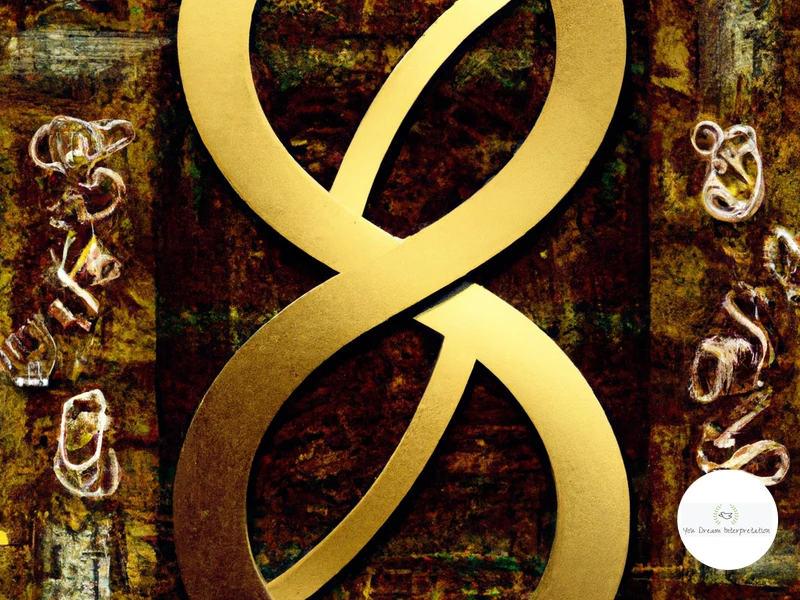
The Conclusion
After delving into the role of numerology in ancient Egyptian culture, we can appreciate the profound impact it had on their beliefs, society, and daily life. Numerology was not simply a mathematical tool for the ancient Egyptians; it held a spiritual significance that permeated every aspect of their civilization. The importance of numbers in Egyptian beliefs shaped their understanding of the universe, with each number symbolizing unique qualities and cosmic forces. Numerological patterns were evident in their architecture, art, and religious practices, serving as a visual representation of their deep spiritual connection to the divine. The four main numerological systems used by the Egyptians, the Heliopolitan, Memphite, Theban, and Hermopolitan systems, offered different interpretations and perspectives on numbers and their meanings. The legacy of numerology in ancient Egypt continues to be felt in the field of Egyptology, where researchers delve into the numerical symbolism found in hieroglyphics, temples, and tombs, seeking to unlock the secrets of the past. In conclusion, the study of numerology in ancient Egyptian culture reveals a fascinating and intricate worldview where numbers were not just abstract concepts but gateways to understanding the divine and the mysteries of existence. By exploring the role of numerology in this ancient civilization, we gain valuable insights into the power of symbolism, the interconnectedness of the universe, and the enduring legacy of ancient wisdom that still captivates us today.
Frequently Asked Questions
1. Why did numbers hold such importance in ancient Egyptian culture?
Numbers were believed to reflect cosmic forces and divine energies in ancient Egyptian culture. They were seen as a way to understand the mysteries of the universe and connect with the divine.
2. What is the symbolism behind the number three in ancient Egyptian numerology?
The number three represented divine perfection in ancient Egyptian numerology. It was associated with the gods Isis, Osiris, and Horus and symbolized harmony, balance, and completeness.
3. How did numerology influence ancient Egyptian religious practices?
Numerology played a crucial role in ancient Egyptian religious practices. Priests and priestesses would interpret numbers and numerical patterns to gain insights into the divine will, guide rituals, and understand the spiritual significance of certain events.
4. Were specific numerical patterns more significant than others in ancient Egypt?
Yes, certain numerical patterns held greater significance in ancient Egypt. For example, the number seven was considered highly sacred and represented the seven components of the soul, while multiples of three symbolized strength and divine harmony.
5. How did numerology influence ancient Egyptian architecture and art?
Numerology played a significant role in ancient Egyptian architecture and art. Sacred proportions and numerical patterns were incorporated into the design of temples, pyramids, and other structures, reflecting the belief that such arrangements enhanced their spiritual and cosmic significance.
6. Were numbers interpreted differently in ancient Egyptian daily life?
Yes, numbers were interpreted differently in ancient Egyptian daily life. People relied on numerology to make important decisions, including naming children, determining auspicious dates for events, and even planning agricultural activities aligned with the cycles of the stars and the Nile River.
7. What were the major numerological systems used in ancient Egypt?
There were four major numerological systems used in ancient Egypt: the Heliopolitan System, the Memphite System, the Theban System, and the Hermopolitan System. Each system had its own unique interpretations and associations for different numbers.
8. How has the legacy of numerology influenced modern Egyptology?
The legacy of numerology in ancient Egypt continues to influence modern Egyptology. Researchers study ancient numerological practices to gain insights into the cultural, religious, and societal aspects of the civilization, helping us better understand and appreciate their rich legacy.
9. Can numerology be used in modern times to gain insights into career choices?
Yes, numerology can be used in modern times to gain insights into career choices. By examining the numbers associated with one’s birth date and name, individuals can uncover their innate talents, strengths, and potential career paths aligned with their numerological influences.
10. Is numerology relevant for finding compatibility in relationships and soulmates?
Yes, numerology can be used to explore compatibility in relationships and find potential soulmates. By comparing and analyzing the numerological influences of individuals, insights can be gained into their compatibility, shared strengths, and potential challenges in a relationship.
References
Frequently Asked Questions
1. How did numerology play a role in daily life for the ancient Egyptians?
Numerology played a fundamental role in the daily life of the ancient Egyptians. It was believed that specific numbers had symbolic meanings and could influence various aspects of life, such as personal traits, relationships, and even luck. Numerological calculations were often used to make important decisions, from choosing auspicious dates for events to determining the most favorable names for individuals.
2. What was the significance of numbers in ancient Egyptian beliefs?
Numbers held great significance in ancient Egyptian beliefs. Each number was linked to a specific meaning or concept, such as the number one representing unity and the number seven symbolizing perfection. Understanding the symbolism behind numbers was believed to provide insights into the nature of the universe and its divine order.
3. How did numerology influence ancient Egyptian architecture and art?
Numerology heavily influenced ancient Egyptian architecture and art. The dimensions, proportions, and layout of structures were often determined by numerical principles. Similarly, artwork and hieroglyphic symbols contained hidden numerical patterns that conveyed deeper meanings and messages. Numerology was regarded as a way to infuse sacred and spiritual qualities into these creative expressions.
4. What role did numerology play in ancient Egyptian religious practices?
Numerology played a central role in ancient Egyptian religious practices. It was believed that numbers had divine qualities and could connect individuals to the spiritual realm. Numerological calculations were used in rituals, ceremonies, and offerings to ensure proper alignment with the gods and to seek their blessings and favor.
5. What were the different numerological systems used by the ancient Egyptians?
The ancient Egyptians employed several numerological systems, each with its own unique characteristics. These included the Heliopolitan System, the Memphite System, the Theban System, and the Hermopolitan System. Each system had its own set of associations and interpretations for various numbers, allowing for a comprehensive exploration of numerological symbolism.
6. How has numerology influenced modern Egyptology?
Numerology continues to have an impact on modern Egyptology. Researchers and scholars often use numerological analysis to gain further insights into ancient Egyptian texts, artifacts, and practices. By understanding the numerical symbolism embedded in these ancient sources, a deeper understanding of the culture, beliefs, and societal structures of ancient Egypt can be achieved.
7. Did ancient Egyptians believe that certain numbers were more auspicious than others?
Yes, ancient Egyptians believed that certain numbers held more auspicious qualities than others. For example, the number three was associated with the concepts of completeness and harmony, while the number nine was believed to have a powerful protective energy. Specific numbers were often used intentionally in various aspects of life to attract positive outcomes.
8. Were there any specific rituals or ceremonies associated with numerology in ancient Egypt?
Ancient Egyptians performed various rituals and ceremonies related to numerology. These included numerical divination practices, where numbers were used to gain insights into the future or to seek guidance from the gods. Numerological calculations were also an essential part of religious ceremonies, where specific numbers were used to invoke the presence and blessings of the deities.
9. Is numerology still practiced in modern Egypt?
While numerology is not as widely practiced in modern Egypt as it was in ancient times, it still holds some significance in certain communities. Some individuals may consult numerologists for guidance and use numerological calculations in personal decision-making processes. However, it is important to note that modern practices of numerology in Egypt may have evolved and adapted over time.
10. Can numerology be seen in other ancient cultures apart from Egypt?
Absolutely! Numerology was not unique to ancient Egypt and can be found in various other ancient cultures worldwide. Ancient civilizations such as the Babylonians, Greeks, Chinese, and Mayans also incorporated numerological systems into their beliefs, practices, and daily life. These diverse cultures recognized the profound symbolism and spiritual significance behind numbers, making numerology a globally prevalent phenomenon.




